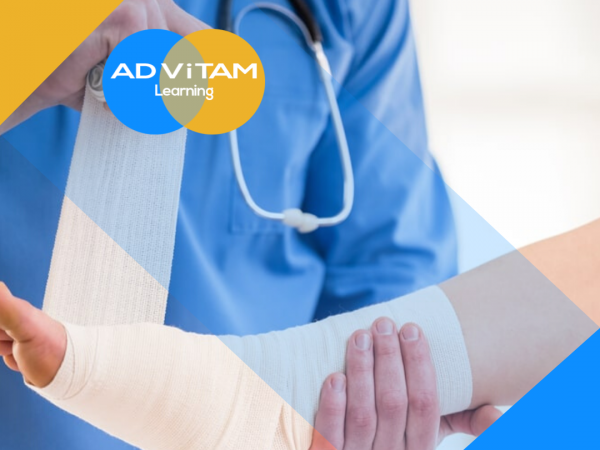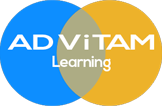Description
Safeguarding Adults | Level 3 | Online Training Course | CPDUK Accredited | Instant Course Access | Includes Assessment & Certificate | Instant Certificate Download.
Welcome to our online Safeguarding Adults – Level 3 training course for front-line healthcare and social care providers. All our online training courses, programmes and qualifications are accredited by the CPD Certification Service (CPDUK).
Safeguarding means protecting people’s health, wellbeing and human rights, and enabling them to live free from harm, abuse and neglect. It also means making sure people are supported to get proper access to health. Safeguarding adults at risk is fundamental to high-quality health and social care services.
All professionals working with adults at risk across all sectors should complete relevant safeguarding adults training courses.
Certificate duration: 2 years
Entry requirements: No entry restrictions
Recommended prerequisites: N/A
Assessment type: End of course assessment
Assessment pass mark – 80% needed to pass and gain a CPD certificate
Cost(s) of assessment and certification – All costs included in the course price
Awarding/Accrediting body – CPD Certification Service (CPDUK)
Who is the course for?
This Safeguarding Adults – Level 3 e-learning course should be completed by those who work with vulnerable adults including in various sectors, including education, community services, healthcare and social care services including:
- NHS medical, nursing, AHP and care staff
- Locum doctors and nurses
- General Practitioners and GP locum staff
- Locum allied health professionals (AHPs)
- Social workers and social care support workers
- Agency nurses
- Agency workers
- Healthcare assistants
- Support workers
- Care assistants
- Community services.
What is covered in this course?
This online Safeguarding Adults – Level 3 training course covers the following:
- What is safeguarding adults,
- How to support vulnerable people,
- How to keep people safe,
- How to respond to safeguarding alerts,
- The legislation surrounding safeguarding adults,
- Understand the Mental Capacity Act,
- Deprivation of Liberty Safeguards,
- Understand the purpose of report writing,
- How to plan an adult protection investigation,
- How to provide strong leadership to make safeguarding integral to care, and
- How to use systems and standards to prevent and respond to neglect and abuse.
Course aims
The aims of this online Safeguarding Adults – Level 3 training course is to improve awareness and knowledge relating to the safeguarding of vulnerable adults at risk, particularly in health care and social care settings. This safeguarding adults course meets the requirements of the Care Act 2014 and the CQC Common Induction Standards. Also, this safeguarding course aims to:
- To provide an understanding of the legislation regarding safeguarding adults
- To provide an awareness of individual and professional responsibilities to support vulnerable adults in a way that lets them make their own choices about their lives
- To prevent harm and reduce the risk of neglect or abuse to adults with living with care and support needs
- To raise awareness so that health and social care staff and professionals understand ways of identifying, responding and preventing abuse and neglect.
Learning outcomes
On completion of this online Safeguarding Adults – Level 3 training course, the learner will know more about:
- Adult safeguarding,
- Supporting vulnerable people,
- Keeping people in care safe,
- Responding to safeguarding alerts,
- Legislation and regulations surrounding adult safeguarding,
- The Mental Capacity Act,
- Deprivation of Liberty Safeguards,
- The purpose of report writing relating to adult safeguarding,
- Planning an adult protection investigation,
- Providing strong leadership to make safeguarding integral to care, and
- Using systems and standards to prevent and respond to neglect and abuse.
What does “safeguarding adults at risk” mean?
So what does safeguarding mean to those who use education, health and social care services? Safeguarding means protecting people’s health, wellbeing and human rights, and enabling them to live free from harm, abuse and neglect. Safeguarding is fundamental to high-quality health and social care services.
What does safeguarding mean for people who use health and social care services?
Safeguarding adults includes:
- Protecting their rights to live in safety, free from abuse and neglect.
- People and organisations working together to prevent the risk of abuse or neglect, and to stop them from happening.
- Making sure people’s well-being is promoted, taking their views, wishes, feelings and beliefs into account.
We help to safeguard adults by:
- Using the information we receive (mainly when concerns are raised about abuse, harm or neglect) to look at the risks to people who use care services.
- Referring concerns to local councils and/or the police for further investigation.
- Carrying out inspections, where we talk to people who use services to help us identify safeguarding concerns.
- Publishing our findings on safeguarding in our inspection reports.
- Taking action if we find that care services don’t have suitable arrangements to keep people safe.
- Working with partners such as the police, local councils, health agencies, other regulators and government departments.
- Taking part in multi-agency safeguarding inspections to get a picture of service users’ experiences and how well they are being safeguarded.
Who is responsible for identifying and dealing with abuse?
Adult abuse is defined as a single or repeated act or lack of appropriate actions, occurring within any relationship where there is an expectation of trust, which causes harm or distress to a vulnerable person.
Safeguarding adults is about protecting those at risk of harm. It involves identifying abuse and acting whenever someone is being harmed. The Department of Health defines a vulnerable adult as a person aged 18 years or over who is or may be in need of community care services by reason of mental or other disability, age or illness, and who is or may be unable to take care of him or herself, or unable to protect him or herself against significant harm or exploitation
Safeguarding is the responsibility of everyone, including all health workers. Anyone can raise a safeguarding concern. All allegations of abuse need to be taken seriously, whether made by a patient, carer, healthcare professional, or other service providers. Any concerns reported to a healthcare worker should be followed up by inquiries about the nature and circumstances of the allegation. It is essential to ask about the safety of the person when the allegation is raised and any support the person is already receiving.
Why is online vulnerable adults at risk training essential?
Safeguarding is protecting vulnerable adults or children from abuse or neglect. It means making sure people are supported to get proper access to health. All professionals working with adults at risk across all sectors should complete relevant safeguarding adults training courses.








